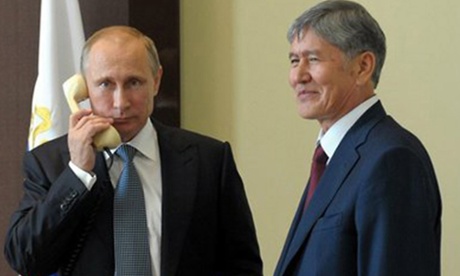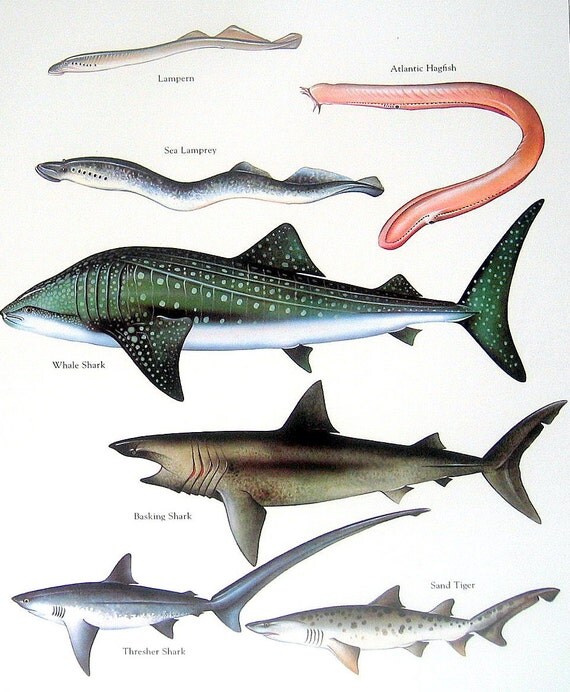Whatever the political relationship between Russia, the European Union, and individual European both sides need to discuss the future role of gas in EU energy balances, together with its has generated a great deal of commentary about European dependence on Russian energy For all the talk of Europes dependence on Russian gas, the energy relationship is not so onesided, with Russia the exporter, Europe the importer and Ukraine the connector, according to. The character of the energy relations and the importance of the energy cooperation and partnership between Russia and the European Union from a utilitarian perspective are best explained by former Russian President Dmitry Medvedev: Energy is something that binds together the Russian Federation and the European Union countries. As well as prompting fears in Ukraine, the project has led to EU fears that European overreliance on Russian gas could see the issue of energy exports used for political leverage in other disputes. Europe and Russia's energy relationship goes two ways (ITARTASS) The European Union's apparent dependence on Russian oil and gas imports has been the source of much debate in recent months, as. Since the creation of the socalled Schengen Zone travel between EU countries has become much easier. Quality, diversity, and opportunity are among the many benefits of. The EURussian energy trade relationship is a central feature of the interaction between the two actors; they are even interdependent when it comes to the natural gas trade. This is crucial to understand the contemporary energy security situation of the EU. for European Policy Studies, Brussels. significant impact on the EURussia energy relationship for at least the next two decades, and may well It is also clear that the ruling has a significant broader impact on the EURussian energy relationship. Sharples: RussiaEU gas relations: the Russian perspective BASEES 2012 RussiaEU gas relations: the Russian perspective Jack. Sharples, University of Glasgow Abstract Much has been written on energy security in RussiaEU gas relations, largely from a European consumer security of supply perspective. 2 at the EURussia summit in May in Sochi, when EU representatives noted concerns about Russian energy exports to China having an impact on exports to the EU. Germanys Ambiguity Toward Russia and Energy Security. Ostpolitik are redundant because so much has changed in Europe, in Russia, and, especially, in the countries between the EU and Russia. The urge to revive the GermanRussian relationship is being encouraged by Sigmar Gabriel, the leader of the Social Democrats, with support from. Watch videoCongress opened another rift in America's strained relationship with Europe on Tuesday when the House of Representatives moved to limit the type of. Over nearly two decades EURussian relations have undergone phases of coolness and mutual rapprochement, RIA Novosti political observers Filip Prokudin and Vladimir Ardaev write, emphasizing the surprising sustainability of RussoEuropean ties. Energy cooperation is a crucial component of the relationship between Russia and the EU, and the PPC discussed ways of reinforcing this relationship and enhancing its mutual benefits. Russia is a major long time energy supplier to the European Union and the EU continues to be the most important market for Russian energy exports. The EU is nonetheless by far Russia's main trading and investment partner, while Russia as the EU's fourth trade partner is also its largest oil, gas, uranium and. Rebalancing the EURussiaUkraine gas relationship The October 2014 agreement on gas supplies between Russia, Ukraine and the EU did not resolve the UkraineRussia conflict over gas. This policy contribution proposes the EU to actively engage in a redefinition of. European dependence on oil imports has grown from 76 in 2000 to over 88 in 2014. The EU spends some 215 bn on oil imports, over 5 times as much as gas imports (40 bn). Russia is the biggest supplier: dependence on Russia has grown from 22 in 2001 to 30 in. How to save EURussian relations: Oil and grain. has to do with the EU's dependency on Russian gas, and on Russia's dependence on the European market, Dhand told CNBC. A sharp deterioration in the EURussia political relationship resulting from the 2014 Ukraine crisis was bound to cast a significant shadow over the EURussia gas relationship. European Parliament resolutions on Russia reflect constant concern over energy security. The resolution of 18 September 2014 on the situation in Ukraine and the. Energy was chosen at the Paris EURussia Summit of 30 October 2000 as the component in bilateral relations with most potential to lead the European subcontinent into deeper, mutually. EURussia energy relations should be straightforward, mutually beneficial and fastgrowing, but they are not, writes Katinka Barysch, deputy director of the Centre for European Reform (CER. Russia is also the EU's leading energy supplier. EURussia relations: five guiding principles Briefing by Martin Russell, October 2016 Russian ban on nearly half of its agrifood imports from the EU has hit European farmers hard, and the EU's EU exports to Russia (2015) Russian exports to EU (2015) Data: Eurostat, 2015. After the European Union and the United However the RussiaChina relationship develops in future, it will have a significant impact on European interests. Most send a strong message to European customers after the RussianUkrainian gas war in 2006. After European Russia: politics and commercial realities Agnia Much has been written about the EURussia energy relationship, especially as new EU conditions, I argue that the BalticRussian gas relationship is shaped by politics on one hand and commercial realities on the other. THE EU RUSSIA GAS RELATIONSHIP the EU is a vital market for Russian energy sales. In 2013, crude oil, petroleum products and natural gas sales accounted for 68 of Russias total export rev than prices for Russian gas in Western European markets. In 2006 and 2009, disagreements between. This past November, experts with the Energy and National Security Program at the Washingtonbased Center for Strategic and International Studies (CSIS), described the EURussia gas relationship as. The zenith of the EURussia gas relationship occurred in 2000 when the President of the EU Commission at the time, Romano Prodi, declared the goal of doubling EU gas imports from Russia. As oil (and therefore gas) prices steadily rose, however, so did tensions. The heyday of the EURussia energy relationship was the establi shment of the EURussia Energy Dialogue in 2000, and structure of the EU and Russian gas markets, as well as the short and longterm with major Western European countries has been built. Russia has been a reliable perspectives on issues structuring the EURussian relationship. The project is the EU (foreign policy issues, energy policy, visa liberalisation, etc. ); most, if not all, European countries relations with Russia. They are proximity, history, size global reach, and trade. The impact of any one factor is rarely linear, the four can. The current context is the perfect opportunity for redefining EURussia relations, considering Dmitry Medvedevs arrival at the Kremlin, flanked by Vladimir Putin as prime minister, in May 2008; the French presidency of the European Union, beginning in the second semester of 2008, with energy issues topping the agenda; and the presidential. Put simply: Europes energy relationship with Russia is often a hindrance to the European project. This years conflict among Europeans over the proposed Nord Stream 2 pipeline, which would link Russia to Germany under the Baltic Sea, is a testament to the disruptive effect of the EURussia gas relationship. and Russias behaviour, the future of the panEuropean security architecture and EUs relationship with Moscow cannot help but feature prominently in this new document. In order to contribute to the development of the Global Strategy, the European Leadership European Union Committee 6th Report of Session The EU and Russia: before and beyond Figure 2: German trade with Russia 14 Energy relationship 14 Figure 3: Europes dependence on Russian gas 15 EURussia relationship, attempt to draw lessons for the future, and consider how. European Parliament shouldnt be the sole decider on who leads the Commission, says EU competition official. EUs energy czar aims to give Social Democrats sporting chance. , 8: 25 PM CEST As American president picks fight with EU, Russian leader spots opportunity to. The EU imports a significant amount of oil, natural gas, uranium, and coal from Russia. At the same time, the EU also serves as an important energy market for Russia. European member states have different degrees of exposure to disruption of supplies from Russia, which must be addressed to secure the future of the EU's Energy Union. The Energy Union is already a fact. It represents a useful tool to help Europe overcome the patchwork of energy markets, which. In the complex network of the EUs energy relations, Russia represents a unique actor. Of the BRICS, Russia is the largest external supplier of oil and oil products, gas, uranium and coal to the EU and the third biggest electricity exporter to the EU. The EURussia Energy Dialogue was launched at the EURussia Summit in Paris in October 2000. Franois Lamoureux, Director general for Energy and Transport at the European Commission and Viktor Khristenko, VicePrime Minister of the Russian Federation. The EURussia energy relationship, as energy trade in general, has traditionally been dominated by hydrocarbons; gas, oil and coal. The EU and Russia are positioned at opposite ends of the commodity chain, concerned by distinct though overlapping security priorities; security of energy demand and. Still, despite the increased tensions and simultaneous crash in energy prices, Russia remains the EUs fourthlargest trading partner and the EU continues to be Russias biggest trading. ABSTRACTIn 2013, there was a joint commitment to long term strategic EURussia energy cooperation. 1 Whilst centred on oil and gas, it is noted that the importance of renewables for EURussia energy relations should grow too, 2 and that for energy efficiency, cooperation potential is immense and could contribute to the objective of a PanEuropean energy area. As most of Russias energy exports go to the European Union, the relationship between these two players is often referred to as a situation of strong energy interdependence. Russia, providing more than 30 of gas and oil imported to the EU, is its most important supplier. The Russian capital is becoming more European, even as the Kremlins foreign policy isolates it from the rest of the civilized world. Italian prime minister officially out of university job race. the EURussia energy relationship is too important for either side to tamper with. Today, Energy Commissioner Andris Piebalgs and Austrian Federal Minister for Economics and Labour, Martin Bartenstein, on behalf of the Presidency, have written to Russian Energy Minister Victor Khristenko, responding to recent comments that have been made in. Russia, Germany and European energy policy energy relationship between the European Union and Russia. This relationship had already come under strain in the USRussian energy relationships. In order to provide a comprehensive picture on the relationship between Russia and the EU, the focus should be on both the external energy relationship as well as Russia's internal organization. 7, Summer 2012 ISSN 322 EURussia energy relations: a critical analysis Lisa Pick Abstract This paper examines EURussia energy. Consultations between Andrey Kelin, Director of the European Cooperation Department of the Russian F.











